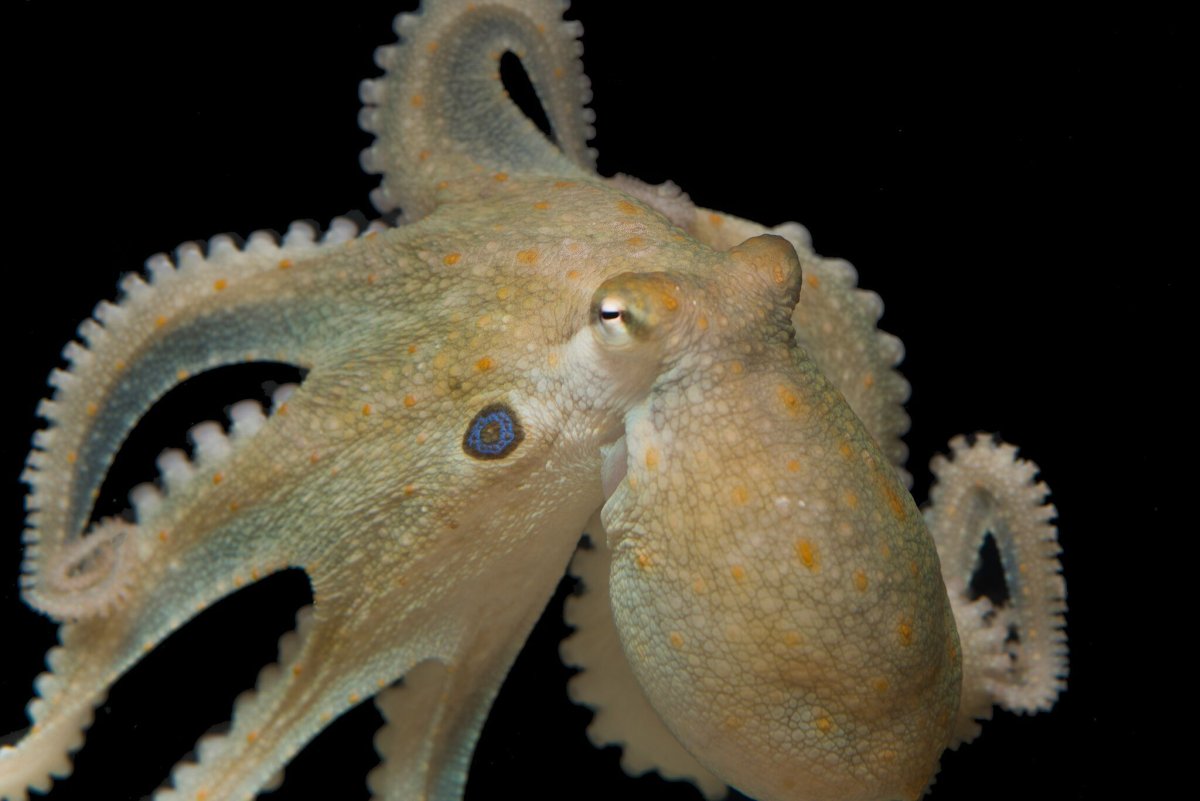Scientists have given octopuses ecstasy to see what would happen and it turns out that, like humans, it makes them more social. After soaking in a bath containing methylendioxymethamphetamine—or MDMA—octopuses were found to spend more time with one another and touched each other.
Gul Dolen, from Johns Hopkins University, Maryland, and colleagues were investigating the evolutionary origin of serotonin signaling in the brain. In humans, ecstasy produces a rush of serotonin, dopamine and oxytocin which creates feelings of euphoria and leads users to become more social.
Studying this effect on the brain could provide a better understanding of how and when social behavior first emerged. The common ancestors of humans and octopuses split on the evolutionary tree about 500 million years ago—if octopuses responded to ecstacy in the same way humans do, it indicates the neurological pathways for social behavior emerged a very, very long time ago.
In their study, published in Current Biology, the scientists assessed the behaviour of Octopus bimaculoides. As well as being a known solitary and antisocial species, O. bimaculoides is also one of the few octopuses that has had its genome fully sequenced—meaning scientists can compare its genes to that of humans.
They put the octopuses into a tank with three chambers where each individual could freely explore. One chamber was empty, one had an inanimate object and the third had another octopus in it.
They then repeated the experiment—but with the octopuses under the influence of ecstasy. Octopuses were placed in a bath containing MDMA for 10 minutes, then after 20 minutes, they were placed back in the tank with three chambers.

Findings showed that after the MDMA bath, the octopuses became more social, spending more time with other individuals. They also spent more time touching each other in an exploratory, non-aggressive manner.
Dolen told Newsweek that before the experiment, he thought there was a "pretty good chance" they would have a reaction to the drug—but what that reaction might be was unclear.
"When they behaved essentially the same way that humans and mice behave, we were pleasantly surprised," Dolen said. "We saw a couple of the animals engage in what I would characterize as play behavior (water acrobatics)."
The team say the findings show there are similarities in the serotonin transporter gene between octopuses and humans, despite the huge anatomical differences. "Octopuses are separated from humans by over 500 million years of evolution, and at the same time, they exhibit remarkably complex behaviors for an invertebrate," Dolen said.
"We have known for a long time that serotonin is an evolutionarily ancient molecule (even plants have it). These studies tell us that one of the ways that serotonin gets processed at brain synapses (i.e. serotonin reuptake) is also pretty old, as is its function as a regulator of social behaviors.
"Finally, these studies suggest that even in a social species like octopuses, the brain mechanisms that encode social behaviors are available, but probably suppressed most of the time," Dolen said.
Not everyone is completely convinced of the findings, however. Christine Huffard, from the Monterey Bay Aquarium Research Institute, told Newsweek: "This is a very interesting approach to understanding the evolution of animal interactions. The study supports previous findings that interactions between octopuses are influenced by the condition of individuals, including exposure to chemicals.
"However, given what we know about octopus interactions, the authors probably measured interest in aggression and not what most people think of as a friendly social call."
Uncommon Knowledge
Newsweek is committed to challenging conventional wisdom and finding connections in the search for common ground.
Newsweek is committed to challenging conventional wisdom and finding connections in the search for common ground.
About the writer
Hannah Osborne is Nesweek's Science Editor, based in London, UK. Hannah joined Newsweek in 2017 from IBTimes UK. She is ... Read more
To read how Newsweek uses AI as a newsroom tool, Click here.








